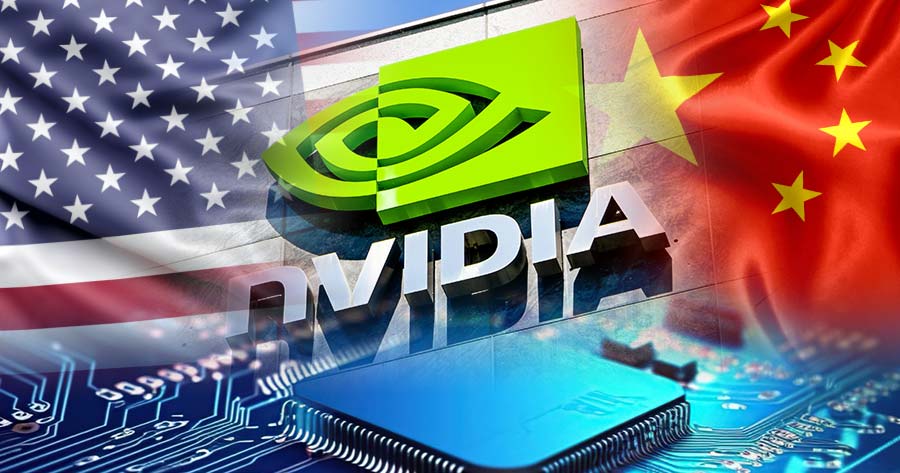Nvidia posted impressive results in the first quarter, surpassing expectations as its EPS surged by 560% YoY to $6.12, exceeding forecasts of $5.58, while revenue climbed 262% YoY to $26 billion, beating estimates of $24.59 billion.
However, the tech giant may encounter a margin squeeze in the Chinese market, where it faces stiff competition from Huawei, a conglomerate tech company.
Reuters reported by citing sources familiar with the matter that Nvidia’s latest AI chip for the China market has faced a slow start, leading to oversupply and pricing pressure when compared to a competing chip from Huawei.
This scenario highlights the challenges Nvidia’s China business is up against amid U.S. sanctions on AI chip exports and increased competition, potentially impacting its prospects in a market that contributed 17% to its revenue for fiscal 2024.
Nvidia, a dominant player in AI chips, unveiled three chips tailored for China late last year after being restricted from exporting its more advanced semiconductors due to sanctions. Among these chips, the H20 has garnered significant attention as the most potent Nvidia product sold in China. However, sources indicate that there is an excess supply of the H20 chip in the market, indicating weak demand.
Reportedly, the H20 chips are being sold at a markdown of over 10% compared to Huawei’s Ascend 910B, the most powerful AI chip from a Chinese company. This price discrepancy underscores the challenges faced by Nvidia in China.
China’s AI industry is anticipated to capture over 30% of the global market share by 2035. This projection may have prompted Nvidia to intensify its efforts to capture market share in China, despite the higher production costs for the H20 chip. Notably, the H20 chip, while pricier to produce, is sold at half the price of a more advanced chip like the H100, which is about six times more powerful than the H20.
During Nvidia’s Q1 earnings call, CFO Colette Kress expressed concerns about the company’s business in China, noting a significant downturn in revenue from the data center business in the country due to sanctions. They anticipate continued market competitiveness moving forward.





